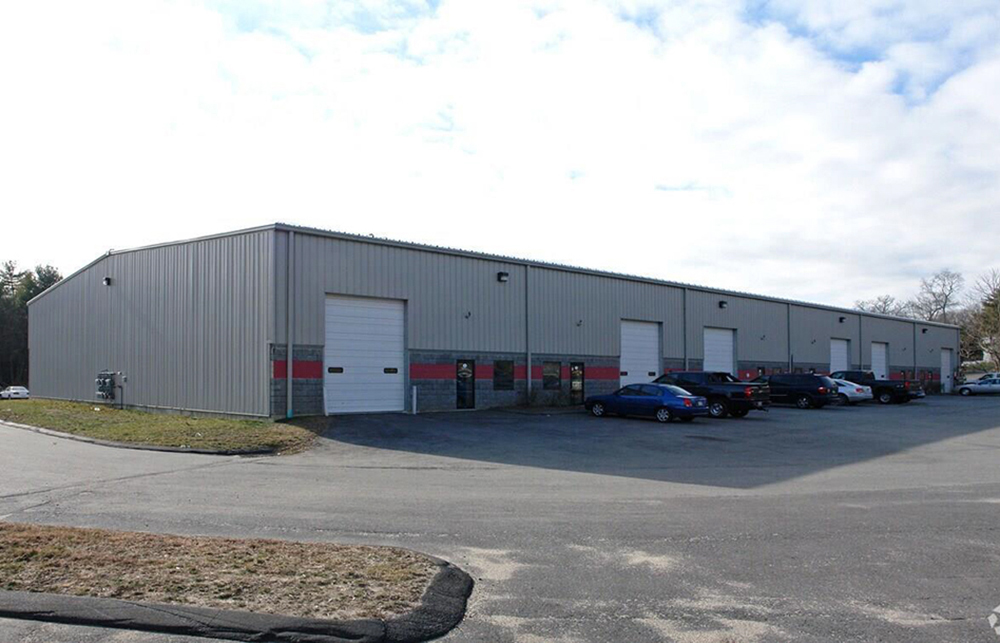Posted: September 26, 2013
Company of the Month: MS Consultants is here to help your company when it comes to tax issues
For most people, "tax" is a four-letter word. There's not much about it that makes you smile...unless, of course, you're paying less of it. That's where MS Consultants, LLC comes in. They're one company that can help you stop uttering other four-letter words when it comes to the tax issues with your buildings.
"The simple fact of the matter is that most building owners are overpaying on their tax bills. We've spent the last fifteen years trying to stop that," said Phil Mann, the company's managing director. "And we have quite a few IRS-approved tools at our disposal."
Cost segregation is the most important tool in MS Consultants' bag. A cost segregation study identifies personal property items or land improvements that are incorrectly classified as part of the building, and assigns them the correct depreciable lives. In simplest terms, it reduces the short-term income tax owed by accelerating the depreciable lives of assets on the taxpayer's books - and we're not talking about pennies.
"The savings can be incredible," said Mann. "We segregated costs for over $1.6 billion in real estate assets in 2012. From that, we delivered almost $700 million in tax savings to our clients."
Take a look around you right now. Chances are, you're sitting in an office with some carpeting, maybe some nice decorative trim around the walls, a wall sconce or two, some window treatments - all of those should be depreciated faster than they are, and that's just the tip of the iceberg.
"It's not just the decorative items. There's much more to it," said Dave Fabian, director. "Look at your outlets. The ones that serve a special purpose—say, to power a fax machine, computer, or a copier—can be depreciated over five years. And it doesn't stop there—you have to take into account the outlet itself, the wiring, the circuit breaker... it's much more than skin deep!"
The company conducts what are known as engineering-based studies (the IRS' preferred method). Rather than basing their reports on cost estimates, they examine the technical details, invoices, and plans of the building before conducting a full site visit to take a full inventory of all the property's assets. It's a painstaking process, but one that pays dividends in accuracy. "You'd be amazed at the differences we find in the field compared to the plans," said Fabian. "We find a lot of extra dollars for our clients just by taking the time to look for them."
MS Consultants has over fifteen years of experience, with more than ten thousand projects completed. There isn't much they haven't seen. "We've done studies on single-family residences, giant office buildings, cavernous warehouses...even historic castles and underground bunkers," said Fabian. "There's not a whole lot out there we haven't seen."
And the reports generated by the cost segregation studies can carry their value for years to come. Under the IRS' new tangible property regulations, building owners can now write off structural components as they're replaced - but only if the costs of those components are properly documented. What's the best way to document those costs, according to the IRS? You guessed it - a cost segregation study.
"We've been on top of the new repair vs. capitalization regulations for a while," said Jeff Hiatt, director of new business development. "Our team has made sure that our reports are consistently updated to reflect what the IRS is looking for in terms of documentation."
The directors at MS Consultants have given dozens of presentations and seminars on the new repair regulations, and staying current on an incredibly confusing tax topic requires a long reading list. "I'm telling you, I think I've read more pages of repair regs than there are in the Harry Potter series," said Hiatt, in a tone of voice that makes you wonder whether he's joking or not.
Other weapons in MS Consultants' arsenal are energy efficient tax incentives. The most popular is the Energy Efficient Commercial Building Deduction - frequently referred to as §179D. In 2005, Congress passed the Energy Policy Act in an effort to develop a long-term national energy policy. One of the key provisions of the act enabled taxpayers to receive a one-time tax deduction for constructing or renovating a building that results in energy savings of 50%, with the maximum deduction up to $1.80 per s/f. This means a 100,000 s/f energy-efficient building could be eligible for a tax deduction of up to $180,000.
Certification for the deduction involves creating an exact computer model of the building and running simulations that test it against all types of weather that local climate may throw at it. A second model is built with the exact same dimensions as the real building, but built to specifications that the IRS considers as a "standard" building - and then comparing the performance of the two.
"And for buildings that don't quite meet the full qualification, the deduction can be broken out between three building systems," said Fabian. "Many of our clients' buildings meet the standard for the partial lighting deduction simply by meeting their state's building codes."
Time is running out to take advantage of §179D, though: the provision is scheduled to expire on December 31.
With all of the complicated issues they deal with, one of the most surprising things about the operation is just how simple it appears from the outside looking in. "We like to call it a turnkey process. We take care of everything - right down to filing Form 3115 for our clients when necessary," said Mann. "We involve our clients as much or as little as they wish to be. You won't be surprised to hear that most of our clients are exceedingly busy—they want to give us the information we need at the start, and at the end they want to know how much money they've saved. In between, we stay out of their hair."
"Tax" may be a four-letter word for some, but don't tell the guys at MS Consultants.
MORE FROM Brokerage
Boston, MA RapDev, a leading software-engineering and DevOps consultancy, has leased 17,587 s/f at 501 Boylston St. in the city’s Back Bay. The company moved into the new space this summer, consolidating operations onto a single floor to accommodate growth and create a workplace that reflects its collaborative culture.














.png)
